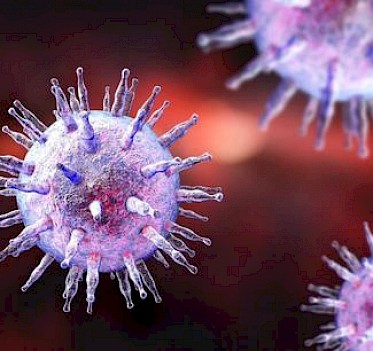This Sickness Kisses and Tells -Longview
Infectious mononucleosis, or simply “mono,” is a disease most commonly associated with teenagers and young adults. This is due to the stigma of mono being the “kissing disease.” It’s called this because it is transmitted through infected people’s saliva, so it is possible to contract it through kissing. Despite its nickname, though, it is far more common for people to get mono through sharing drinks or eating utensils than kissing.
Mono is caused by the Epstein-Barr virus (a type of herpes). Mono has a lengthy four to eight week incubation period, and the infection can last for a few weeks to several months. While it is more common for young adults and teenagers to contract mono, it is possible for those outside of this demographic to get infected. Young children often show very few, or no symptoms of mono if they contract it, and it often goes unnoticed. It isn’t uncommon for most, if not all, of these symptoms below to surface in young adults:
Symptoms:
-fatigue
-sore throat
-fever
-swollen lymph nodes (in neck and armpits)
-swollen tonsils
-headache
-skin rash (usually occurs if you take antibiotics)
-swollen spleen and/or liver (though this is rare in most cases)
Like chickenpox, once you get mono odds are you won’t come down with it again. Although, this isn’t entirely true. Kind of like shingles, EBV stays dormant in your body after you’re infected with it so it’s possible that symptoms of it will resurface later.
There are no vaccines against mono, but the best way to avoid the disease is by not sharing your drinks, or eating utensils, with others. If you are infected stay home to avoid potentially spreading disease to coworkers or schoolmates. If you get mono, the best way to treat it is to stay hydrated and to get plenty of rest.
If you start exhibiting any of symptoms of mono, drop by and see us. Mono has symptoms similar to many other diseases, so we here at HealthCARE Express can do a monospot test by drawing blood and looking for abnormal white blood cells, or checking for an abnormal amount of them, which are both hints of the disease. There are no cures for mono, but HealthCARE Express can help set you on the track to treating the symptoms.
